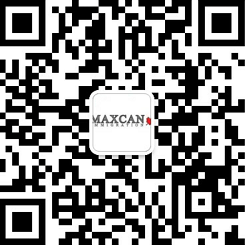Fake Consultants
Posted on 02/08/2017
Man held for illegally consulting Korean immigrants, getting them jobs where a part of their paycheques collected as ‘payback’
A multiple-years-long investigation by CBSA brings to light the widespread exploitation of immigrant workers by coercing them to accept less than agreed pay
According to an investigative report, an immigrant employment racket in Winnipeg may have up to 26 sushi restaurants and an unlicensed immigration consultant. Court documents allege that Korean immigrants employed at the restaurants may have been coerced into illegally giving back part of their pay back to their employers.
The unlicensed immigration consultant in question, Hae Suk Yoon, 67, has to stand trial for multiple charges under the Immigration and Refugee Protection Act. He is also being charged with possessing proceeds of a criminal activity under the Criminal Code.
The Canadian Border Services Agency (CBSA) has investigated the case for several years and allege that Yoon is responsible for supplying several Korean immigrant workers to local sushi restaurants. Yoon had been acting as an immigration consultant between 2009 and 2014. The CBSA charged him in September. The court documents state that the authorities have significant evidence against at least one of those restaurants for coercing the immigrants to return hundreds of dollars from their paycheques.
The CBSA obtained a search warrant on 3rd November, 2014 to conduct a search of Yoon’s residence, and in the 96 page information submitted to obtain the warrant, there is one case where a confidential informant placed inside an unnamed Winnipeg sushi restaurant told the investigators that they were forced to hand over a portion of their paycheques to their employers. This allowed the employers pay a much lower salary than what was officially agreed.
In 2009, Yoon assisted three Korean nationals at the border crossing at Emerson. Since he was not a licensed immigration consultant, he caught the attention of a CBSA superintendent, who began investigating him. The CBSA continued the investigation for several years, gathering a lot of information from confidential informants, interviews and statements of restaurant owners and digging up its own records to find inconsistencies.
Finally, by September of 2016, the CBSA had gathered enough evidence to file charges.
According to Canada’s Immigration and Refugee Protection Act and the Citizenship Act, any consultant who provides advice regarding citizenship or immigration for a fee has to obtain a license and a membership from Immigration Consultants of Canada Regulatory Council. Alternatively, a lawyer with a good standing can legally provide such advice regarding citizenship or immigration.
Yoon told reporters that he began volunteering to help the Korean community, which then turned into a full-time occupation. He said that he started doing it since he was in a position where he could be of assistance. He admitted that he never obtained an authorized license for acting as an immigration consultant.
Since most of the charges are related to being an unlicensed immigration consultant, he admitted that he was guilty of them. His lawyer, Evan Roitenberg, said that Yoon had not yet entered into a plea deal, but federal prosecutors expect him to do so by his sentencing on 28th of November.
Yoon was born in Korea and has been in Canada since 1976. He said that he started acting as an immigration consultant, without accreditation, in order to help other Koreans arriving in Canada. He said that he always tried to get them into legal professions. He did sometimes come to know about an employer cutting the paycheques of Korean immigrants he had helped. In that case, he said, he always tried to get them away from that employer and find them new jobs. He said that there are plenty of places where this problem exists, though he refused to name the restaurants that he was aware of skimming money from immigrant employees. He said that his role was limited to getting a permit for the employees, and all matters of salaries were negotiated and agreed between the employers and employees.
According to the information in the documents attributed to the confidential informant known as “Source B,” they applied for a job at an unnamed sushi restaurant in Winnipeg in 2012. In order to get work permits to be eligible for the job, they had to pay Yoon a fee for processing documents in order to obtain the permit. This fee was collected from their paycheques. In addition, they also had to ‘pay back’ the restaurant a portion of their salary, which was arbitrarily determined by the restaurant. The source also stated that he was not alone, and some other Korean immigrant workers were also subjected to such paybacks.
The documents also state information obtained from another confidential source, referred to as “Source A.” According to information attributed to Source A, Yoon was working with over a dozen sushi restaurants in the region to provide them with Korean immigrant workers. The source also states that the immigrant workers were required to pay money from their pay cheque to Yoon for processing their paperwork and getting them a work permit.
Collecting a fee, or a portion of paycheques, in exchange for finding work or a job for foreign immigrant workers is illegal as per the Worker’s Recruitment and Protection Act. The fees necessary for processing the paperwork are supposed to be paid by the employers.
Yoon said that he had to collect the fees for processing the paperwork from the employees since the employers refused to pay them. He said that since the immigrants were in need to get a work permit to move to Canada, and employers had an advantageous position, they exploited the situation and coerced the employees to pay the fees.
Looking at the records, the Media discovered that some of the restaurants been purchased by new owners during the course of the investigation. The Media thus decided to withhold the named of all the restaurants in order to prevent tainting the names of any unrelated parties.
Many immigration consultants who have been working in the field for several years are not surprised by this case. According to Ji-Yung Choi, a Regulated Canadian Immigration Consultant of Korean descent, many foreign migrants accept very low salaries and even payback arrangements with employers. She says that the people who come to Canada with a dream to build a better life are afraid that they may have to return if they speak up against their employer.
An immigration lawyer, Ken Zaifman, who has been practicing in Winnipeg for a long time, also agrees. He added that such cases of migrant employees having to pay back a portion of their salaries are quite common. In fact, he says that he has seen cases where the employer accompanied the employee to the bank to cash the paycheque and collected the payback in cash to avoid leaving any trace. He also said that the foreign immigrants are afraid to complain since they are unsure of their status and their ability to remain in Canada.
In their investigations, the CBSA discovered that 106 individuals listed Yoon’s address on the paperwork for the immigration process. Most of these immigrants arrived in Canada as tourists or as students studying English as a second language. There were several individuals who, after working in on of the 13 sushi restaurants, went on to obtain permanent residence status. Another 13 sushi restaurants were found to have some links with Yoon, taking the number of restaurants under the scanner to 26.
The CBSA refused to comment when asked by The Media what charges could be brought against these restaurants or their owners. Though it mentioned in a prepared statement that the businesses involved in the illegal recruitment activities with regard to foreign workers, depending on the type of offence and the circumstances of the offence, could potentially face legal action by the provincial and federal government. Additionally, the financial transactions that support or are a result of illegal activities may be examined by various law enforcement agencies as per the provisions of the Criminal Code.
Posted in Tips and tagged ICCRC, Immigration Fraud, Regulated Canadian Immigration Consultant




